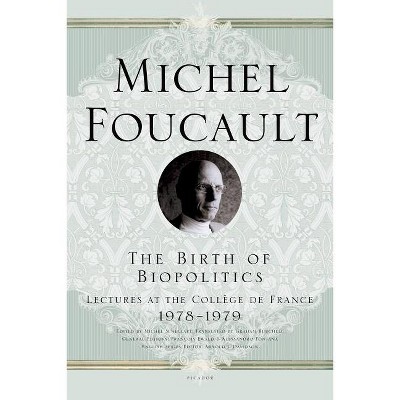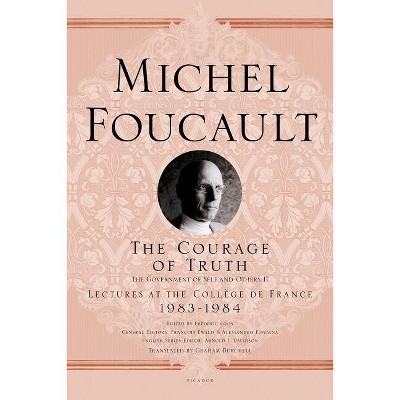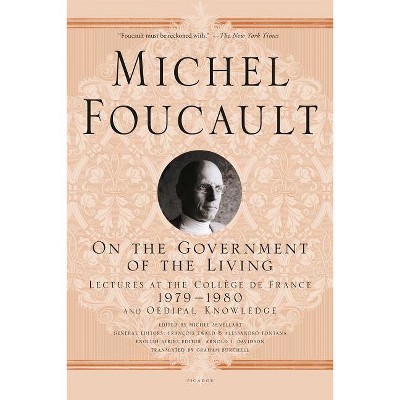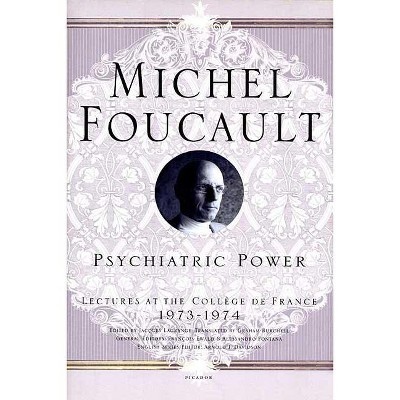Sponsored

France and European Integration - by Michel R Gueldry (Hardcover)
In Stock
Sponsored
About this item
Highlights
- Gueldry analyzes the substantive transformations brought upon the French state by European integration through an incremental and cumulative process generally described as Europeanization.
- About the Author: MICHEL R. GUELDRY is Associate Professor of French Studies, Monterey Institute of International Studies.
- 256 Pages
- Freedom + Security / Law Enforcement, General
Description
About the Book
Gueldry analyzes the substantive transformations brought upon the French state by European integration through an incremental and cumulative process generally described as Europeanization. This restructuring is characterized by the erosion of traditional political and economic parameters, the emergence of new means and models of public action, and a general paradigmatic redefinition, including a search for renewed political legitimacy by French elite.
Covering the period from 1957 to the present, Gueldry examines how regional integration affects French governmental structures, public policies, political processes, and culture. He emphasizes the post-Single European Act (February 1986) period because of the accelerating momentum of the integration process after this milestone treaty. Students, scholars, and policy makers involved with EU history, institutions, and policies will be particularly interested in the work.
Book Synopsis
Gueldry analyzes the substantive transformations brought upon the French state by European integration through an incremental and cumulative process generally described as Europeanization. This restructuring is characterized by the erosion of traditional political and economic parameters, the emergence of new means and models of public action, and a general paradigmatic redefinition, including a search for renewed political legitimacy by French elite.
Covering the period from 1957 to the present, Gueldry examines how regional integration affects French governmental structures, public policies, political processes, and culture. He emphasizes the post-Single European Act (February 1986) period because of the accelerating momentum of the integration process after this milestone treaty. Students, scholars, and policy makers involved with EU history, institutions, and policies will be particularly interested in the work.Review Quotes
.,."a good survey of the existing literature on France and European integration, both in French and in English, summarized into a coherent, easy-to-read package."-Political Science Quarterly
.,."a valuable resource for students invited to enquire whether or not the EU spells 'de Gaulle's second death'."-Modern & Contemporary France
?...a good survey of the existing literature on France and European integration, both in French and in English, summarized into a coherent, easy-to-read package.?-Political Science Quarterly
?...a valuable resource for students invited to enquire whether or not the EU spells 'de Gaulle's second death'.?-Modern & Contemporary France
?The real strength of the book is that, while keeping the main topic on center stage, the author provides irresistible examples of the uniqueness of French culture.?-Choice
?This excellent tour d'horizon for the "enlightened public" offers not only a balanced, well-informed review of French institutions, the role of the French state after World War II, and French social, monetary, and security policies. It is also a convincing study of how European integration has transformed the old Jacobin concept of the state, sovereignty, and "Colbertist" economic policy.?-Foreign Affairs
..."a good survey of the existing literature on France and European integration, both in French and in English, summarized into a coherent, easy-to-read package."-Political Science Quarterly
..."a valuable resource for students invited to enquire whether or not the EU spells 'de Gaulle's second death'."-Modern & Contemporary France
"The real strength of the book is that, while keeping the main topic on center stage, the author provides irresistible examples of the uniqueness of French culture."-Choice
"This excellent tour d'horizon for the "enlightened public" offers not only a balanced, well-informed review of French institutions, the role of the French state after World War II, and French social, monetary, and security policies. It is also a convincing study of how European integration has transformed the old Jacobin concept of the state, sovereignty, and "Colbertist" economic policy."-Foreign Affairs
About the Author
MICHEL R. GUELDRY is Associate Professor of French Studies, Monterey Institute of International Studies. Professor Gueldry has published extensively through book chapters and articles in journals such as French Politics and Society, La Revue Francaise, and European Community Studies Association Review.Shipping details
Return details
Trending Non-Fiction











